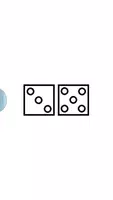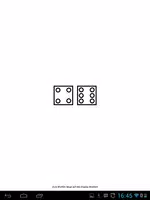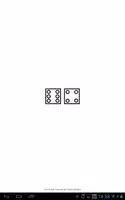two simple dice
Dice, fundamental tools for games and random number generation, come in diverse shapes and sizes. This guide introduces two common types within a concise 100-word description: the standard six-sided cube, numbered 1 to 6, ubiquitous in board and casino games; and the less frequent four-sided tetrahedron, displaying numbers 1 to 4. Both offer fair and unbiased random results, making them integral to many games.
Objective
The primary objective is to achieve specific point totals or combinations through dice rolls, following established rules.
Gameplay
- Setup: Two six-sided dice and a scoresheet (optional) are required.
- Rolling: Players alternate turns rolling both dice.
- Scoring: Points are awarded based on the roll's outcome.
Basic Rules
- Sum: Points equal the dice roll total.
Combination Bonuses:
- Doubles: (e.g., two 3s) yield bonus points.
- Seven: Rolling a total of 7 often earns extra points.
Scoring Example
Total Score: Accumulate points from each roll.
Special Rolls:
- Doubles: +10 points
- Total of 7: +5 points
Variations
- Target Score: A predetermined score (e.g., 50) signifies victory for the first player to achieve it.
- Rounds: Play a fixed number of rounds; the highest cumulative score wins.
Tips
- Enjoyment: Prioritize fun and social interaction.
- Score Tracking: Tracking scores enhances the competitive aspect.
two simple dice
Dice, fundamental tools for games and random number generation, come in diverse shapes and sizes. This guide introduces two common types within a concise 100-word description: the standard six-sided cube, numbered 1 to 6, ubiquitous in board and casino games; and the less frequent four-sided tetrahedron, displaying numbers 1 to 4. Both offer fair and unbiased random results, making them integral to many games.
Objective
The primary objective is to achieve specific point totals or combinations through dice rolls, following established rules.
Gameplay
- Setup: Two six-sided dice and a scoresheet (optional) are required.
- Rolling: Players alternate turns rolling both dice.
- Scoring: Points are awarded based on the roll's outcome.
Basic Rules
- Sum: Points equal the dice roll total.
Combination Bonuses:
- Doubles: (e.g., two 3s) yield bonus points.
- Seven: Rolling a total of 7 often earns extra points.
Scoring Example
Total Score: Accumulate points from each roll.
Special Rolls:
- Doubles: +10 points
- Total of 7: +5 points
Variations
- Target Score: A predetermined score (e.g., 50) signifies victory for the first player to achieve it.
- Rounds: Play a fixed number of rounds; the highest cumulative score wins.
Tips
- Enjoyment: Prioritize fun and social interaction.
- Score Tracking: Tracking scores enhances the competitive aspect.





